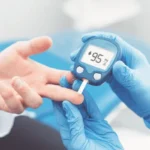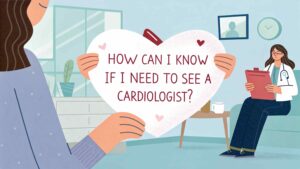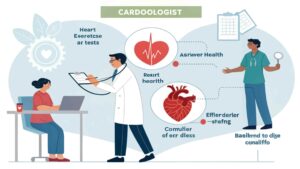As women age, their bodies go through a natural biological process known as menopause. This transition marks the end of menstrual cycles and brings about a series of physiological changes. While many associate menopause with symptoms like hot flashes and mood shifts, its effects on cardiovascular health are also a significant area of focus.
What Is Menopause?
Menopause is a point in time 12 months after a woman’s last period. This transition most often begins between ages 45 and 55. During menopause, the body ends the production of estrogen, a hormone made by the ovaries. Estrogen is a hormone that regulates the menstrual cycle and affects the reproductive system. It also has an effect on other parts of the body, including the heart and blood vessels, bones, and brain. The decline in estrogen levels is the primary driver behind the physical and emotional changes associated with menopause.
How Can It Affect Heart Health?
The decrease in natural estrogen levels during and after menopause can influence factors that affect the heart. Estrogen is believed to have a positive effect on the inner layer of the artery wall, helping to keep blood vessels flexible. This means they can relax and contract to accommodate blood flow. Lower estrogen levels may be linked to changes that contribute to an increased risk of heart disease after menopause.
Several risk factors for heart disease may change around the time of menopause.
- Changes in Cholesterol Levels: The decline in estrogen can lead to an increase in cholesterol. This shift can contribute to the buildup of plaque in the arteries.
- Increased Blood Pressure: Blood pressure may become more sensitive, which can lead to higher readings. High blood pressure is a major risk factor for heart attacks and strokes because it forces the heart to work harder to pump blood.
- Changes in Blood Sugar: Women can become more resistant to insulin as they age, causing blood sugar levels to rise. Elevated blood sugar is a precursor to diabetes, which itself is a strong risk factor for developing cardiovascular disease.
Other symptoms commonly experienced during the menopausal transition, such as sleep disturbances, may also be related to heart health. It is beneficial to discuss any new or concerning symptoms with a healthcare provider.
How Is It Treated?
Managing menopause focuses on relieving symptoms and preventing chronic conditions that can occur with aging. One common approach for managing moderate to severe menopausal symptoms is hormone replacement therapy (HRT). HRT involves taking medications to replace the estrogen the body no longer produces. This therapy has been shown to be effective in relieving hot flashes and preventing bone loss. For women who begin hormone therapy before the age of 60 or within 10 years of menopause, it may also offer some protection against heart disease. The decision to use HRT is made on a case-by-case basis after a thorough review of a woman’s medical history and risk factors.
Meet With an OBGYN
The hormonal shifts that occur during menopause can affect cholesterol, blood pressure, and body composition, all of which are related to heart function. A partnership with a healthcare provider is fundamental to navigating this transition. An Obstetrician-Gynecologist (OBGYN) can provide guidance, screen for health risks, and discuss personalized management strategies. Regular check-ups and proper treatments will help you maintain your health and vitality for years to come.














